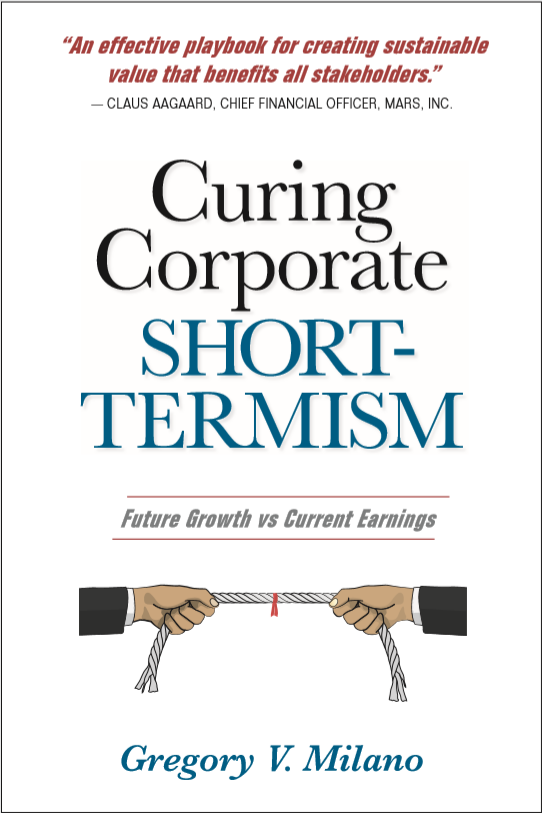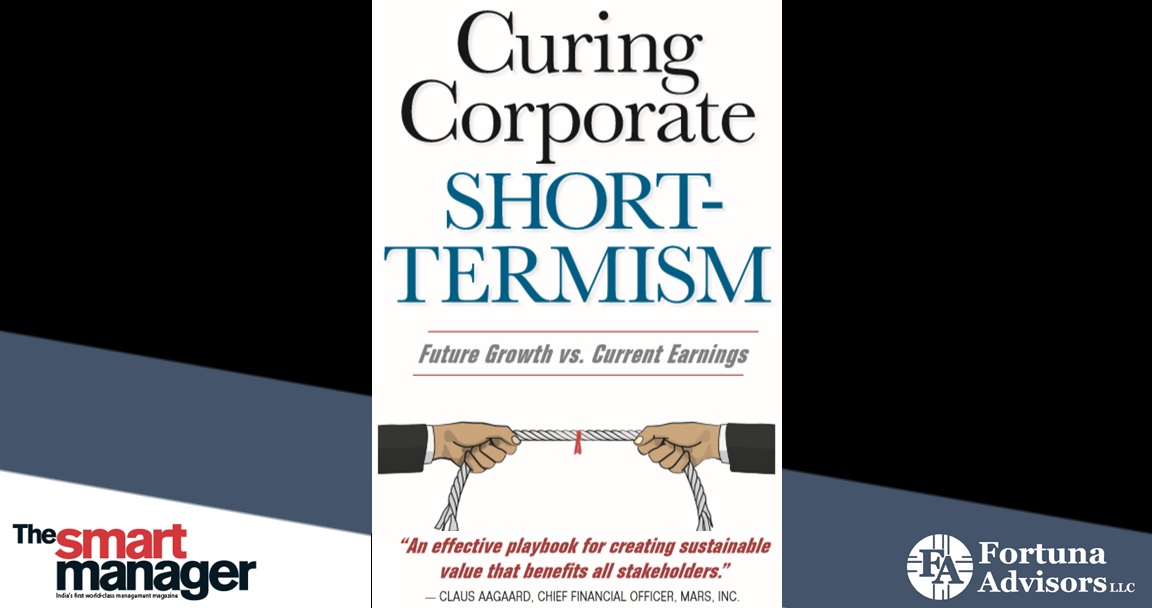
Quarterly Earnings, Budgets, and Plans
The quarterly earnings call has taken on increasing importance for public company managers and often triggers decisions that limit success over the longer term. Executives tend to fear that their share prices will crater if they don’t deliver earnings per share (EPS) that meets or exceeds consensus estimates.
And their reaction may be justified in the short term. Fortuna Advisors’ research shows that, over a single quarter, beating consensus estimates of securities analysts had a larger effect on share prices than whether EPS improved. But when we extend the timeframe to a year and beyond, we found that EPS growth over the prior period mattered more than beating consensus.
So, why is beating consensus so important to managers? Often it’s because consensus earnings are influenced by guidance from managers, who naturally prefer to be perceived as successful. By tempering the expectations of investors and analysts, they are more likely to “beat consensus” and secure praise. And many board compensation committees also consider consensus estimates when determining incentive compensation performance targets.
Which brings us to planning—every year, management teams submit a multi-year plan, often showing a near-term decline, but strong performance thereafter. The allure of this “hockey-stick” forecast is that it provides an achievable target for the annual incentive plan, and a strong long-term outlook to secure approval for capital requests. This “sandbagging” of budget- or plan-based performance targets is simply planning for mediocrity, and may be the most underappreciated problem in business.
Performance Measurement
Executives are often surprised that popular performance measures can motivate poor decision-making. Consider the common practice of linking compensation to improvements in return on invested capital (ROIC), which indicates profitability and capital productivity.
For a business earning a high ROIC, say 25%, any investment earning less would bring down the average return and reduce bonuses. The core principle of corporate finance is that an investment that earns a return above the cost of capital creates value. For most companies, a project earning a 20% return would add value—so does it make sense to penalize a manager for making this investment?
Sometimes, the opposite situation can be just as problematic. For a business earning a mere 2% ROIC, any project that earns more would be automatically rewarded without meeting any other criteria. In some companies, managers are rewarded for investing at 6% in one business unit, while managers in a better-performing unit see their bonuses decline because they invested at 20%.
Unfortunately for all stakeholders, tying incentives to incomplete measures leads to poor resource allocation decisions. Curing Corporate Short-Termism is a guide to help executives flush out these and other destructive tendencies, and to offer a framework for long-term value creation that can provide lasting benefits for all stakeholders.
Instilling an Ownership Culture
Owner-managers tend to be especially motivated to make their businesses prosper and to strive for objectives that seem unrealistic to others. In contrast, with employee-managers, considerations about negotiation of performance targets too often cloud decision-making and obscure the ultimate goal of value creation.
The results-orientation of an ownership culture can be reinforced with a continuous improvement mindset that is guided by a comprehensive performance measure, such as Residual Cash Earnings (RCE). RCE was developed to reflect value added, and relates better to total shareholder return, or TSR, than traditional measures of value creation. When it rises, it’s good; when it declines, it’s bad. As explained in Curing Corporate Short-Termism RCE is calculated as gross cash earnings less a capital charge based on the gross operating assets invested in the business.
Whereas companies that use measures like ROIC often invest too little, and those focused on sales
growth or EBITDA often invest too much, with RCE, managers can reliably gauge the tradeoffs to make all good long-term investments while avoiding those unlikely to pay off.
Setting Aspirational Goals and Continuous Improvement
Star athletes don’t hedge and say, “We’re probably going to lose” just to impress everyone if they win. Yet this is how corporate managers have been conditioned to provide guidance and internal forecasts. Tying pay to improvements in RCE, and not to budgets and plans, frees up managers to think big about the unfettered possibilities for value creation. Paying employees for such improvements welcomes innovative and creative strategies, coupled with an emphasis on execution. And it’s all right if some ventures fail, as long as the overall portfolio of initiatives improves RCE over time.
None of the great business success stories, such as those of Steve Jobs or Jeff Bezos, happened by playing it safe. Virtually every successful entrepreneur challenges their organization to find new avenues for improvement. Unfortunately, the standard corporate practice of measuring performance against budgets tends to suppress this aspirational mindset.
Excerpted with permission from Fortuna Advisors, from the book Curing Corporate Short-Termism by Gregory V Milano.

